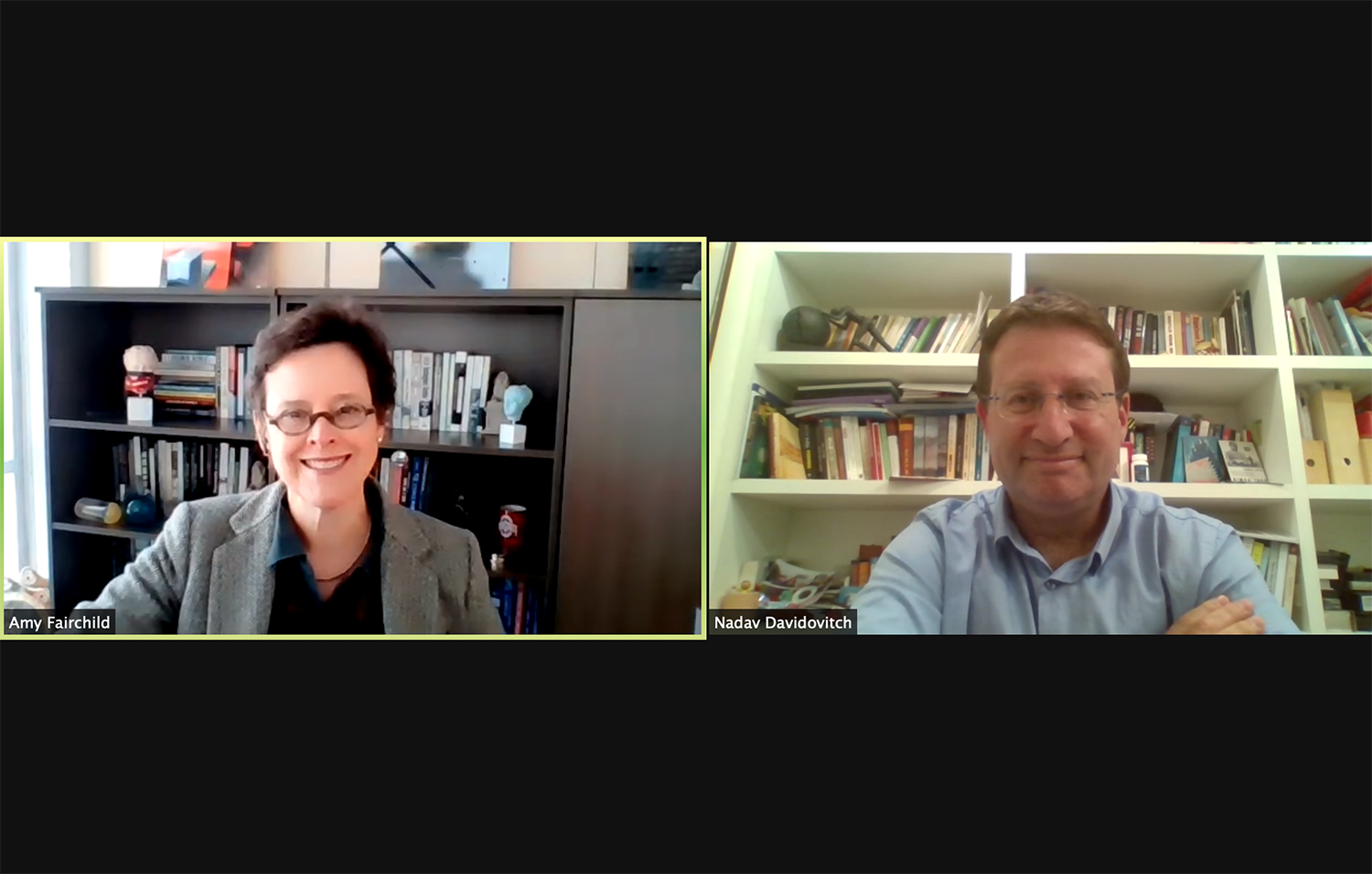Exploring lessons, challenges of Israel’s vaccine rollout
College hosts public health leader Nadav Davidovitch

Israel has earned global attention for its accelerated COVID-19 vaccine distribution — with nearly half the nation's population having received the first vaccine dose as of mid-February.
On Feb. 16, the College of Public Health hosted Israeli public health expert Dr. Nadav Davidovitch of Ben-Gurion University of the Negev for a virtual conversation about his country’s vaccine successes and challenges — and what lessons the U.S. can take away.
Israel’s vaccination rates are high for several reasons including a single-payer universal health care system, centralized medical records and agreements with Moderna and Pfizer for Israel to serve as a national case study for herd immunity, said Davidovitch, director of the School of Public Health at University of the Negev and member of the Israel national COVID-19 advisory committee.
Before COVID-19, Israel was also highly engaged in emergency preparedness, including test runs on mass vaccination.
“We were doing drills all over the country about decision-making, prioritization and ethical issues, so that is something that had been discussed between the different stakeholders,” Davidovitch said.
Relying on primary health care providers for vaccine rollout has also been advantageous because those clinics are spread throughout Israel, including in remote areas, he said. Centralized information technology infrastructure and medical records have made it easier to prioritize higher-risk groups and to schedule appointments. “We have active interventions of calling people that are not vaccinated,” he said.
In addition, the Ministry of Health and Israeli Medical Association have employed “exhaustive awareness campaigns” to educate citizens and fight fake news, and the sense of a “race for the vaccine” has increased public demand and reduced hesitancy.
But “nothing is perfect … it’s important to remember it’s a multilayered story,” Davidovitch said.
Issues remain with access inequities. And compliance is an ongoing question, especially among cultural minorities including Arabs and ultra-orthodox Jews, though tailored outreach is helping on that front, he said.
“There are many ethical questions here. Are we going too far in our privacy and data collection?” Davidovitch said. “Are we focusing too much on vaccination and leaving other things aside?”
“COVID is like a mirror reflecting many of the problems in our society … it’s so dynamic, and every week we have a new challenge.”
About The Ohio State University College of Public Health
The Ohio State University College of Public Health is a leader in educating students, creating new knowledge through research, and improving the livelihoods and well-being of people in Ohio and beyond. The College's divisions include biostatistics, environmental health sciences, epidemiology, health behavior and health promotion, and health services management and policy. It is ranked 22nd among all colleges and programs of public health in the nation, and first in Ohio, by U.S. News and World Report. Its specialty programs are also considered among the best in the country. The MHA program is ranked 5th and the health policy and management specialty is ranked 21st.